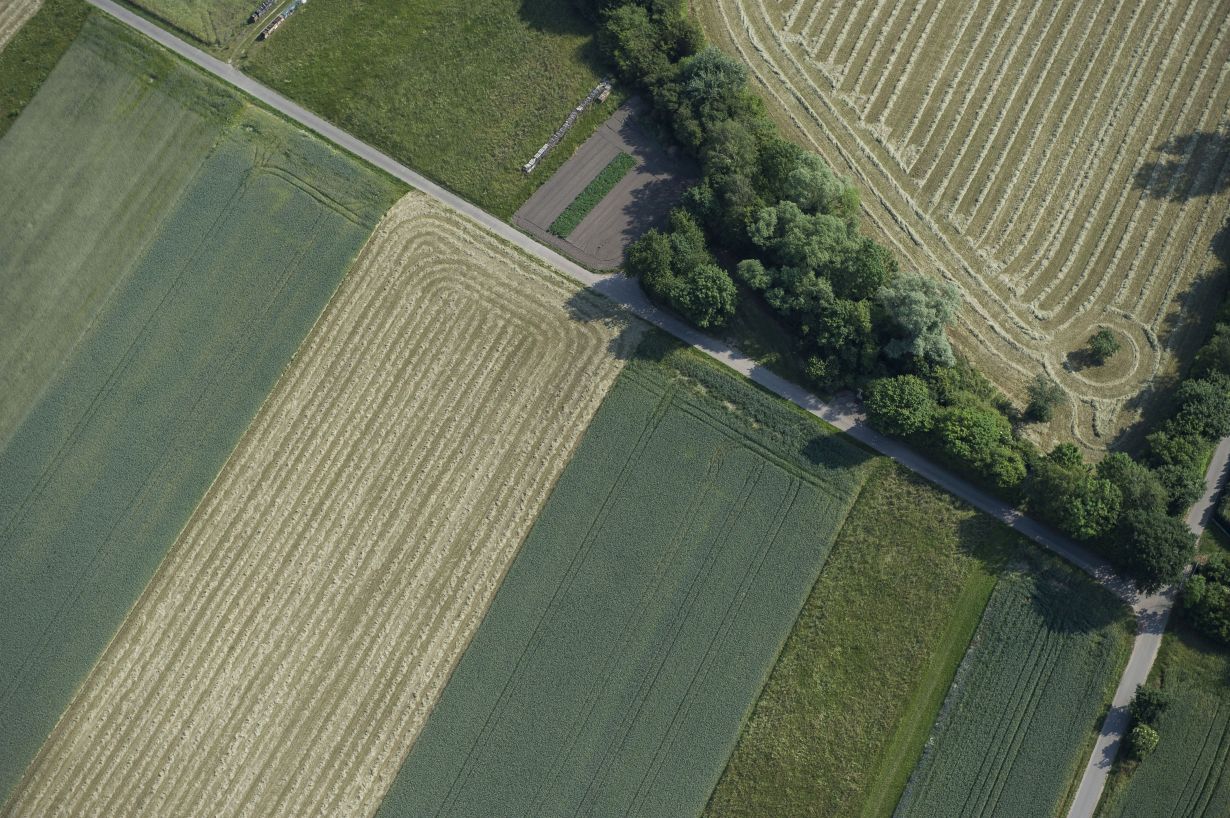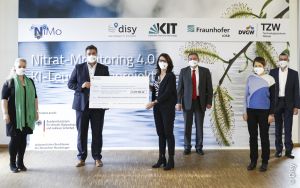
With a model for forecasts, an association of researchers from Karlsruhe, including scientists from Karlsruhe Institute of Technology (KIT), seeks to efficiently and sustainably reduce nitrate concentration in groundwater. The model is based on artificial intelligence (AI). Smart decision support and self-learning computers will help the partners take adequate measures. Within the framework of the AI Strategy Program, the Federal Environmental Ministry (BMU) funds projects that manage ecological challenges with the help of artificial intelligence (AI Lighthouses). Undersecretary of State Rita Schwarzelühr-Sutter has now handed over the funding approval.
High nitrate concentrations in groundwater and their impacts on humans and the environment recently met with increasing public awareness. If the crops grown on the fields are not fertilized as needed, more nitrogen enters the ground than can be taken up by the plants. This nitrogen is dissolved in water and enters the groundwater in the form of nitrate. About 70% of the German drinking water is extracted from groundwater. Too high nitrate concentrations in the drinking water may damage human health, such that supply companies have to take complex measures to reduce nitrate concentrations. Water monitoring shows that groundwater quality is endangered at many places.

Handover of the funding approval for the NiMo 4.0 project. From left to right: Dr. Tanja Liesch (AGW, KIT), Claus Hofmann (Managing Director of Disy), Rita Schwarzelühr-Sutter (Undersecretary of State), Dr. Thomas Usländer (Fraunhofer IOSB), Bettina Lisbach (City of Karlsruhe, Mayor for the Environment and Health), Dr. Josef Klinger (Managing Director of TZW). (Photo: Disy)
Within the project "Nitrate Monitoring 4.0 - Smart Systems for Sustainable Nitrate Reduction in Groundwater" (NiMo 4.0), scientists from KIT and other partners develop a smart system to better understand and predict spatial and temporal distribution of nitrate in groundwater with a few measurement points only. With the help of such forecasts based on machine-learning methods, smart decision support will be achieved to find optimal places for additional measurements and launch optimal programs for groundwater protection. NiMo 4.0 is funded with a total of EUR 2.478 million within the framework of the initiative "AI Lighthouses for the Environment, Climate, Nature, and Resources" of the Federal Ministry for the Environment, Nature Conservation, and Nuclear Safety (BMU).
"BMU has agreed to fund this project, because the nitrate problem in German groundwater represents an ecological challenge," said Undersecretary of State Rita Schwarzelühr-Sutter (BMU) when she handed over the approval letter to the cooperation partners. "Use of smart software may help combine ecological and economic interests of the society, water supply companies, and agriculture. This will give rise to smart environmental technologies for wide later application."
Interdisciplinary Consortium Develops Nitrate Monitoring 4.0






